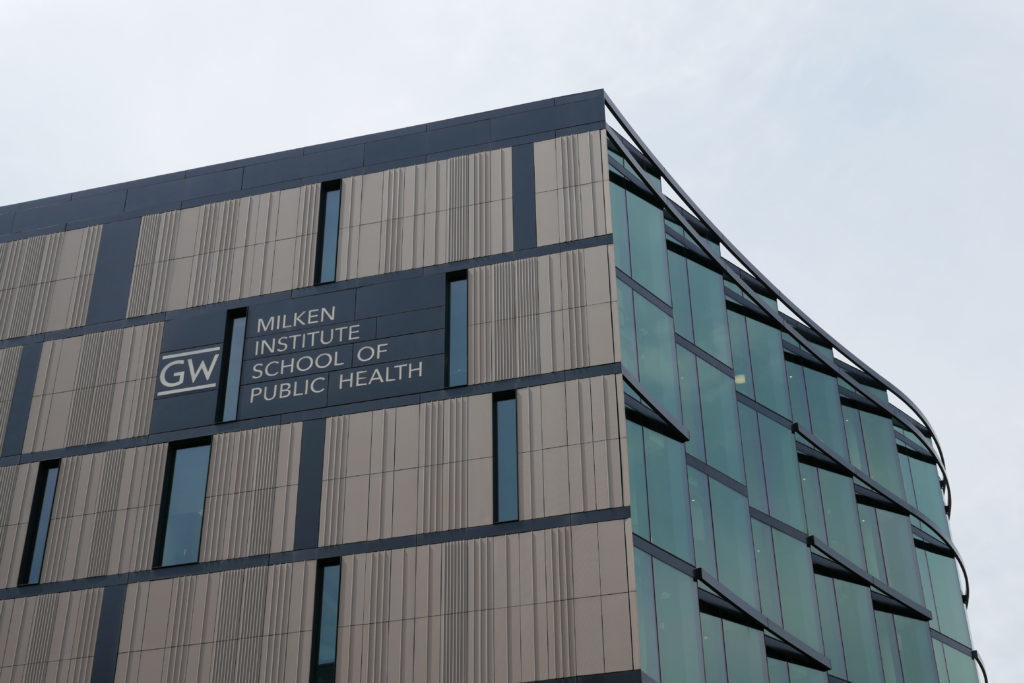An AIDS-focused research center at the Milken Institute School of Public Health is partnering with Puerto Rican public health scholars and officials to address the island’s HIV epidemic.
The National Institutes of Health awarded funding for the D.C. Center For AIDS Research, a District-area consortium of investigators and institutions that support HIV research, according to a public health school release. Public health experts said Puerto Rican officials must make HIV-preventing medication easily accessible and diminish the stigma surrounding the condition to address the epidemic.
Carlos Rodriguez-Diaz, the principal investigator for the project and an associate professor of prevention and community health, said the team received the grant in August. He said the team’s efforts will build upon research Rodriguez-Diaz has conducted on the HIV epidemic in Puerto Rico over the past decade.
He said the project – which is funded through May 2020 – will inform the government, community and academic officials about the tools needed to improve HIV prevention and care in Puerto Rico. Rodriguez-Diaz said the team is studying how HIV testing interventions – like offering PrEP, an anti-HIV medication for HIV-negative individuals – can lead prevention efforts on the island.
“Ultimately, we hope to provide improved prevention and treatment services for HIV,” he said in an email.
Rodriguez-Diaz said San Juan, Puerto Rico is considered a “hotspot” for HIV diagnoses – along with 48 U.S. counties and D.C. that account for more than 50 percent of HIV diagnoses in the United States. He said Puerto Rican officials have made minimal efforts to encourage populations at risk for developing HIV, like men who have sex with men, despite the growing HIV epidemic.
A 2014 study found that factors like injection drug use, lower availability of syringe exchanges, minimal drug abuse treatment and limited access to antiretroviral medication – like PrEP – contribute to higher HIV risk in Puerto Rico.
“There is still an evidence gap in translation overall HIV research findings into practice and informing future studies based on the needs of those providing services,” Rodriguez-Diaz said. “This project is aimed at filling this gap.”
The funding coincides with a larger NIH effort to bankroll the proposed Ending the HIV Epidemic: A Plan for America – in which researchers will use data and tools to decrease HIV cases in the United States and address regions and populations disproportionately affected by HIV.
Public health experts who study the HIV epidemic in Puerto Rico said public health officials must ensure that the island’s residents have access to preventive medication and decrease the stigma surrounding HIV diagnoses.
Melissa Marzan-Rodriguez, a co-investigator of the project and public health research fellow at the University of Puerto Rico, said the health care system in place for the HIV-positive population in Puerto Rico provides adequate patient care. But she said public health scholars must focus on developing strategies – like making PrEp more readily available – to prevent the spread of HIV.
“Here in Puerto Rico, we have very limited access to PrEP, because the services are provided by community-based organizations – so basically the public clinic – and they don’t have PrEP to provide to anyone,” Marzan-Rodriguez said.
She added that the stigma around taking an HIV test still exists within Puerto Rican communities, and that raising awareness of HIV and making the testing process more friendly can facilitate prevention efforts.
Marzan-Rodriguez said the partnership between D.C. CFAR and the public health school can encourage communities, public health officials and academics to collaborate to find solutions for the epidemic and build the research infrastructure for future studies.
“This is the first step of the whole new strategy that we need to develop,” she said.
Omar Martinez, an assistant professor of public health at Temple University, said a contributing factor to the HIV epidemic in Puerto Rico is “marginalization and discrimination” against Puerto Rican citizens who do not receive enough public health funding.
“There are a lot of resources that have been constrained, they haven’t received the attention that they need as regarding treatment and prevention,” he said.
Martinez said the partnership between D.C. CFAR and Puerto Rico will help address larger social problems – like the stigma surrounding the disease – that have contributed to the epidemic.
“Researchers and policy officials do not tend to work together sometimes, and I think this partnership can influence the officials with evidence-based science and with information of what works and what doesn’t work,” Martinez said. “And hopefully the initiative could lead to the evidence-based intervention that works.”





